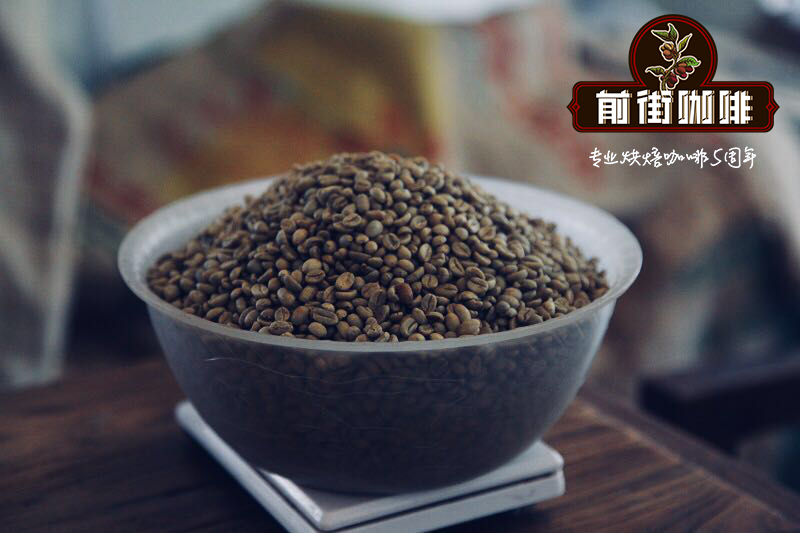Is caffeine the source of coffee bitterness? The bitterness of coffee comes from roasting

Professional coffee knowledge exchange more coffee bean information please follow the coffee workshop (Wechat official account cafe_style)
Everyone thinks that caffeine is the cause of the bitter taste of coffee, but in fact, caffeine accounts for only 10% of the bitter ingredients. As we said earlier, the concentration of caffeine in roasted beans is not affected by the degree of roasting, and decaf coffee also tastes bitter, so we can be sure that caffeine is not the whole cause of bitterness. So what is the remaining 90% bitterness?
One of the root causes of the bitterness of coffee is brown pigment. Brown pigments are also roughly classified according to molecular size, and macromolecular brown pigments are more bitter. With the deepening of the baking degree, the amount of brown pigment will increase, and the proportion of macromolecular brown pigment will also increase. So deep-roasted coffee beans are more bitter and textured-which is consistent with our daily impressions.
The bitterness and texture of Arabica and Robeska are different, which is caused by the difference in the quantity and molecular size of brown pigment. Because the sugar content of Robeska is lower than that of Arabica, it is not easy to "caramelize", so it is easy to form macromolecular brown pigment, so the baked Kanefa is more bitter.
Another reason for bitterness is the "cyclic diaminic acid" formed by amino acids and proteins after heating. If the molecular structure is different, the degree of bitterness is also different. In addition to coffee, this ingredient is also found in the same bitter cocoa and dark beer.
Unbaked coffee is called raw beans or mung beans (green bean). In addition to water, other ingredients of raw beans are carbohydrates (also known as carbohydrates), proteins, lipids, organic acids, minerals, trigonelline, and other acidic substances (mainly chlorogenic acid).
What does the raw bean taste like? If someone asks this question, he can probably only answer: "the taste of raw beans is the taste of raw beans. When you taste it, this is the taste of raw beans." "
The taste of raw beans is very different from that of cooked beans, so someone once said, "80% of the taste of coffee is determined by raw beans, while the other 20% depends on roasting." "
Doesn't it taste bitter?
In fact, the bitter taste is not so bad. In fact, if the coffee is not blended with bitter taste, it may taste too sour or too sweet. The key is "balance". A little bitterness can bring out more rich and diverse flavor levels, as long as the bitterness is not too heavy.
What is interesting, however, is that for most people, we can accept more bitter coffee than sour coffee.
However, coffee with too much bitterness is really bad, so let's look at what bitterness is and how to avoid bitterness when brewing.
END
For more professional coffee exchanges, please scan the code and follow Wechat: qiannjie
Important Notice :
前街咖啡 FrontStreet Coffee has moved to new addredd:
FrontStreet Coffee Address: 315,Donghua East Road,GuangZhou
Tel:020 38364473
- Prev

The sour taste of coffee comes from the benefits of acid chlorogenic acid in coffee the role of chlorogenic acid in coffee
Professional coffee knowledge exchange more coffee bean information please pay attention to coffee workshop (Wechat official account cafe_style) caffeic acid (English: Caffeic acid) is an organic compound belonging to hydroxycinnamic acid with phenolic hydroxyl and acrylic acid functional groups. Because caffeic acid is one of the main components of lignin in biosynthesis of plant biomass and its residues.
- Next

What is Arabica coffee? Is all the good coffee Arabica coffee?
Professional Coffee knowledge Exchange more information about coffee beans Please follow the coffee shop (Wechat official account cafe_style) Coffee advertisements often emphasize that they use 100% Arabica coffee. Yes, in terms of price alone, Arabica is indeed more advanced, the average price of Arabica coffee beans is twice that of Robusta. In terms of composition, Arabica caffeine
Related
- Beginners will see the "Coffee pull flower" guide!
- What is the difference between ice blog purified milk and ordinary milk coffee?
- Why is the Philippines the largest producer of crops in Liberia?
- For coffee extraction, should the fine powder be retained?
- How does extracted espresso fill pressed powder? How much strength does it take to press the powder?
- How to make jasmine cold extract coffee? Is the jasmine + latte good?
- Will this little toy really make the coffee taste better? How does Lily Drip affect coffee extraction?
- Will the action of slapping the filter cup also affect coffee extraction?
- What's the difference between powder-to-water ratio and powder-to-liquid ratio?
- What is the Ethiopian local species? What does it have to do with Heirloom native species?

